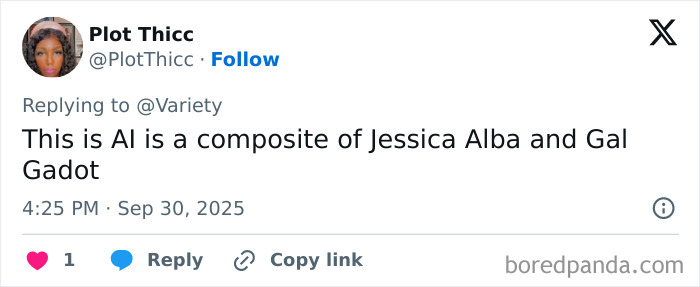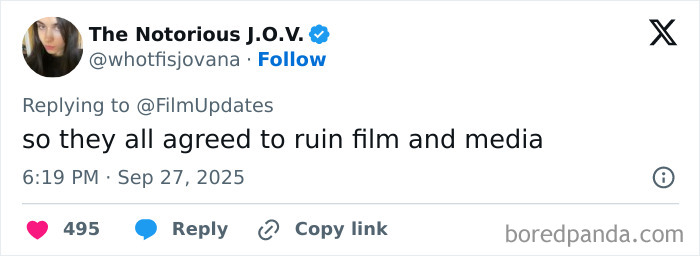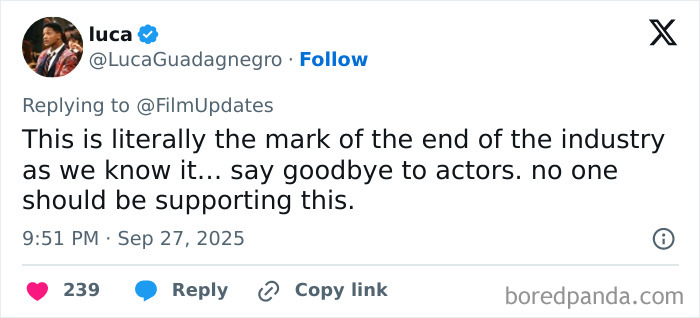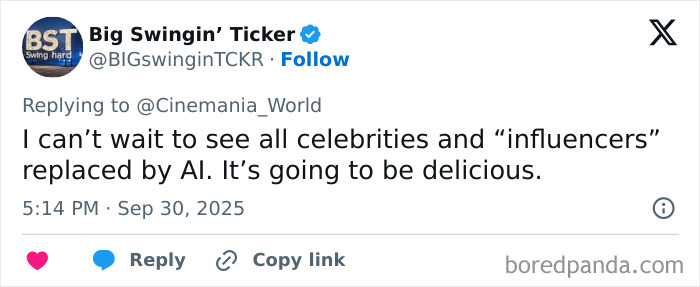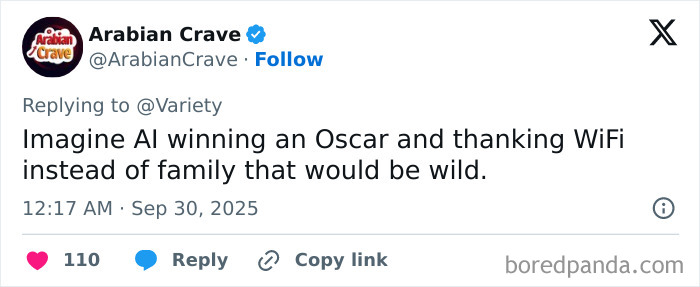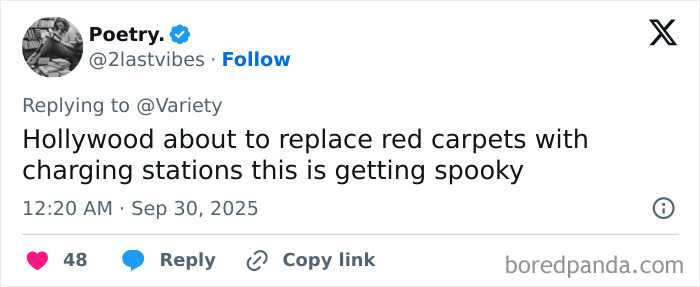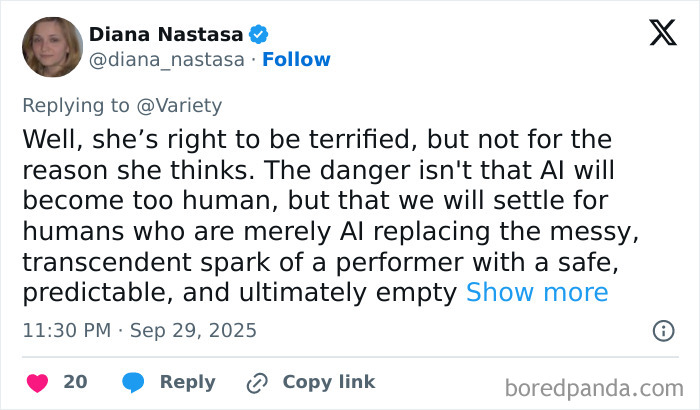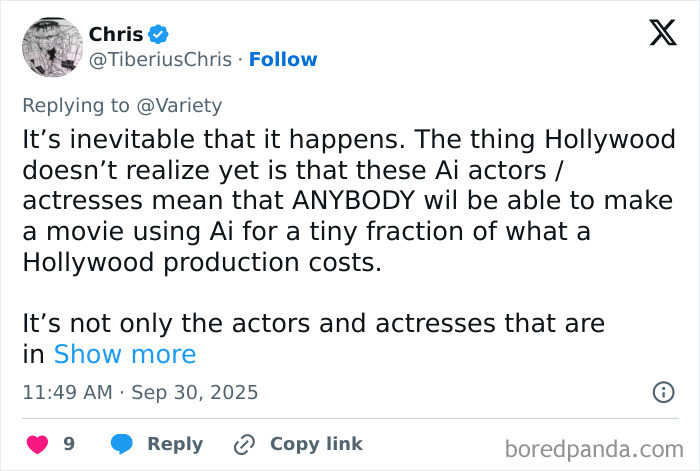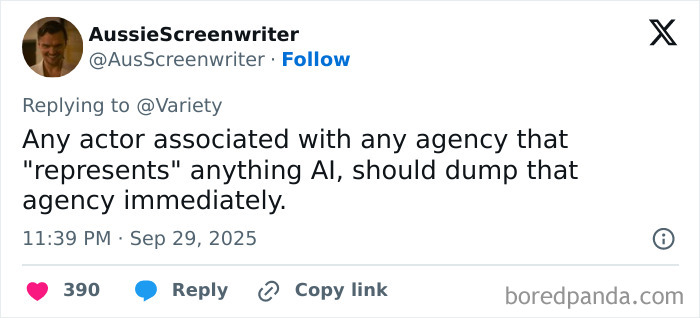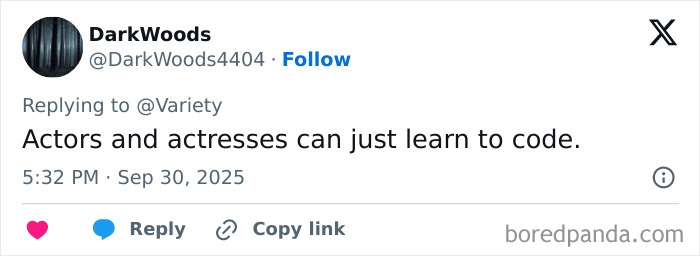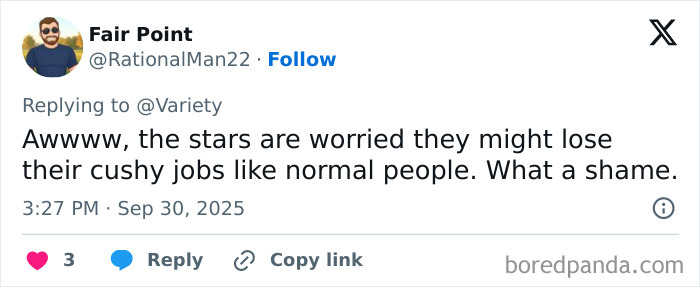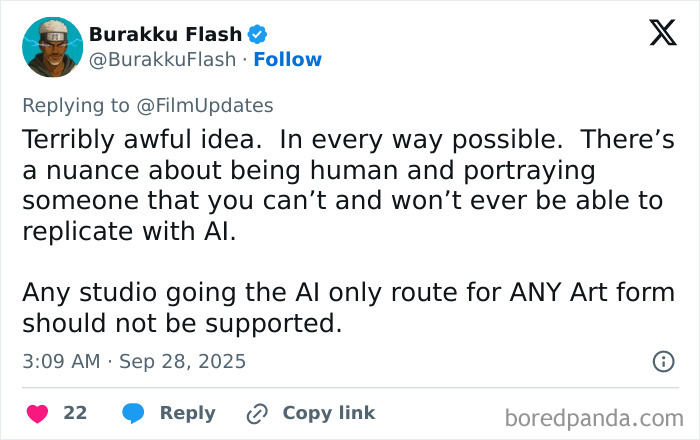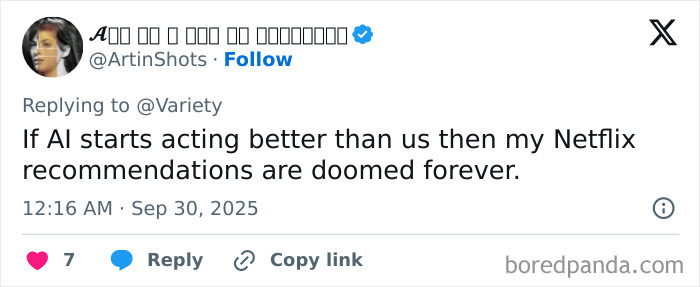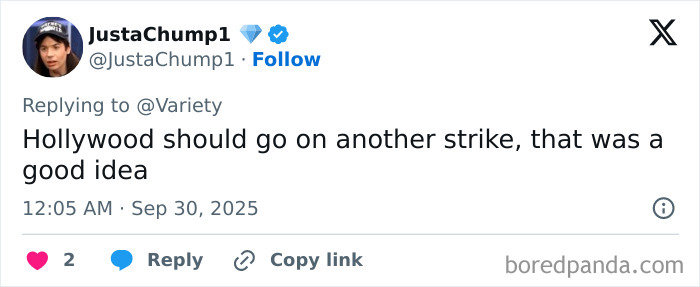Emily Blunt has taken up arms against the rise of AI-generated celebrities, specifically naming virtual performer Tilly Norwood as “terrifying,” and pleading with talent agencies not to sign her.
Norwood was created by AI talent studio Xicoia and unveiled by Eline Van der Velden at the Zurich Film Festival.
Tilly, a young brunette actress designed to resemble a composite of famous stars, was even pitched as “the next Scarlett Johansson.” Within days of her debut, she began drawing interest from talent agents.
“That’s an AI? Good Lord, we’re screwed,” the actress said when shown a photo of Norwood during an interview.
Actress Emily Blunt labeled Tilly Norwood, an AI-generated celebrity, terrifying, pleading with the industry to not go in that direction
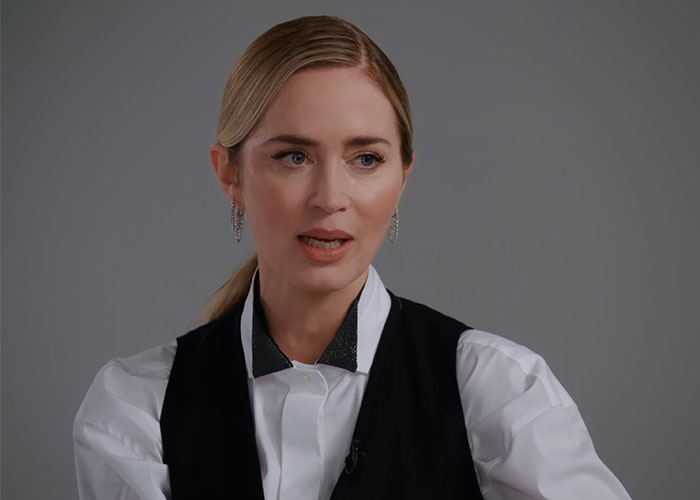
“That is really, really scary. Come on, agencies, don’t do that. Please stop taking away our human connection.”
When informed Tilly was built to resemble Johansson, the actress cut in sharply:
“But we have Scarlett Johansson.”
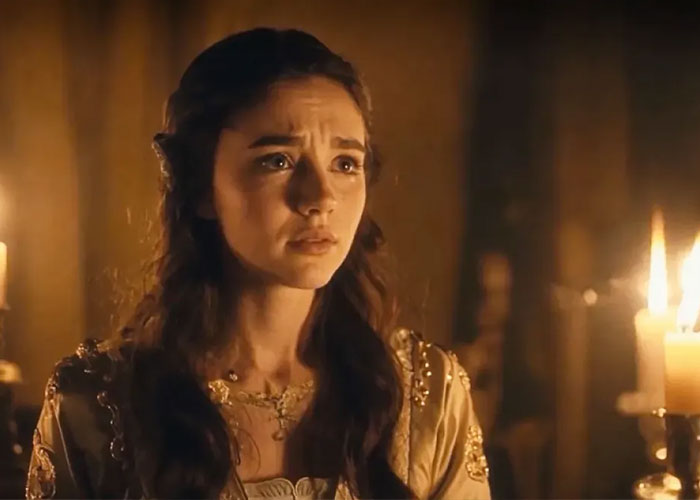
However, unlike flesh and blood talent, these new virtual celebrities promise something no human could ever deliver: immortality.
Eternally young, eternally happy, never exhausted, and never exposed to controversy, these AI celebrities come, in the eyes of agencies, with all the upsides of signing a promising talent, but without any of the hassle.
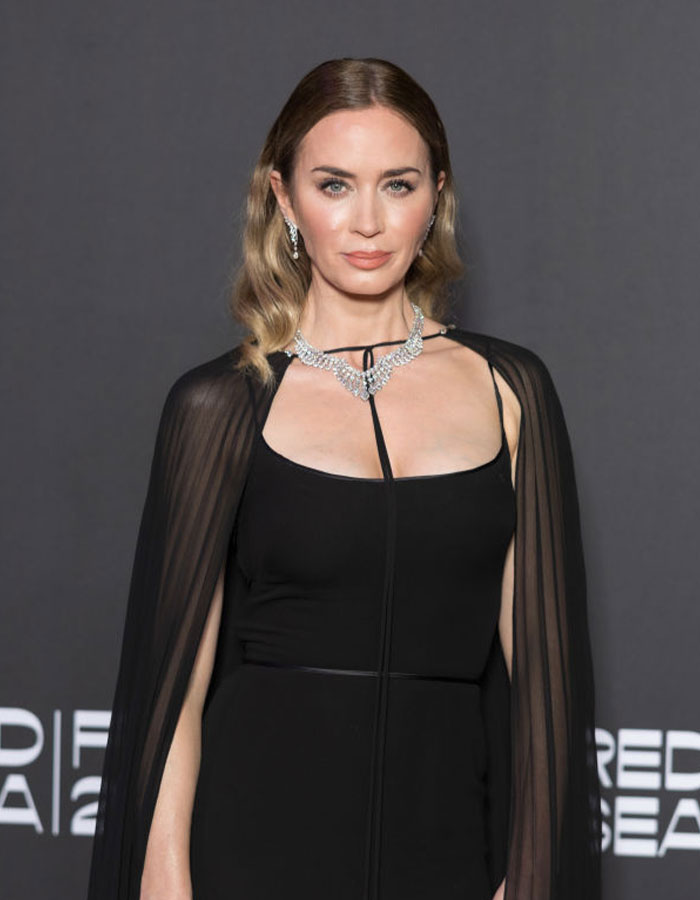
No team in charge of her makeup, no one to prepare her diet, no expensive hotel arrangements. Norwood promises to be always on time, always ready, working 24/7, and fully in the hands of her agency.
Several Hollywood actresses joined Blunt in criticizing the rise of virtual celebrities
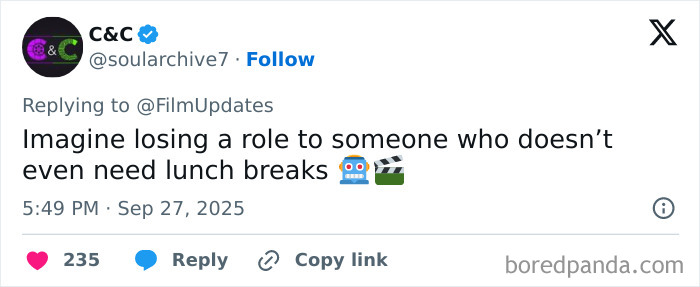
Blunt is far from the only star speaking out. Scream actress Melissa Barrera posted a furious Instagram Story after the announcement:
“Hope all actors repped by the agent that does this, drop their a**. How gross, read the room.”
Former Matilda star Mara Wilson criticized the ethics behind the project, writing:
“And what about the hundreds of living young women whose faces were composited together to make her? You couldn’t hire any of them?”
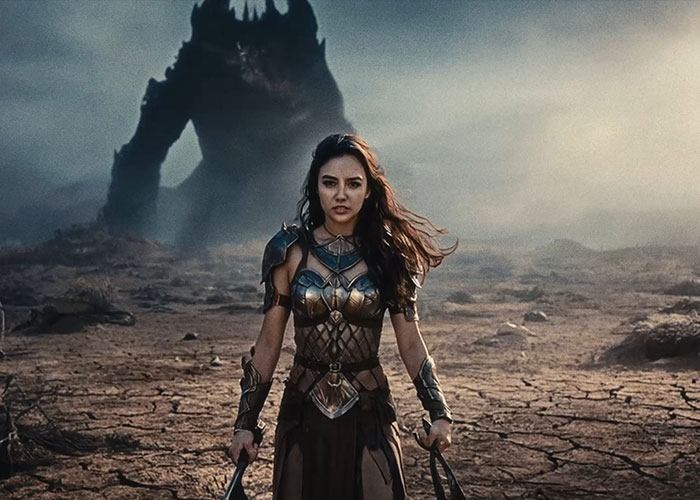
On The View, Whoopi Goldberg recognized the advantages that these AI creations have over human actors, as they are essentially made of the collective talent of thousands of artists.
“The problem with this, in my humble opinion, is that you are suddenly up against something that’s been generated with 5,000 other actors,” she explained.
“It’s got Bette Davis’ attitude, it’s got Humphrey Bogart’s lips. It’s got my humor, thank you darling. And so it’s a little bit of an unfair advantage.”
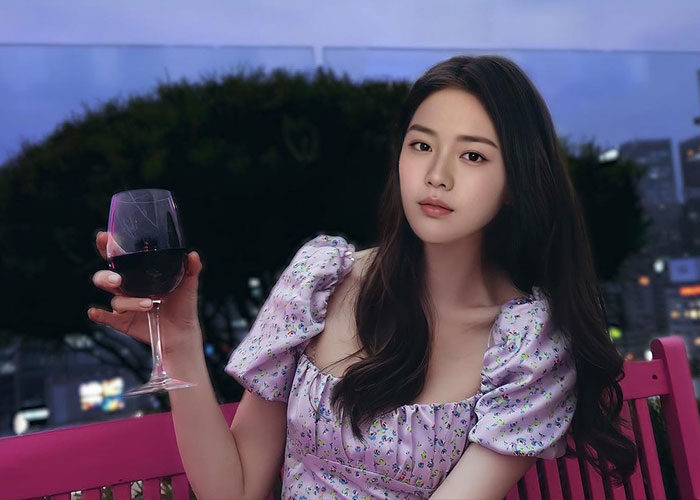
Goldberg lamented the impact AI has and will likely continue to have on multiple industries, not just acting, and the effects it will increasingly have on the way humans connect to one another.
“People talk about people who are so lonely they don’t have a connection, if you stick with this, with AI, you won’t have any connection to anything but your phone,” she added.
Norwood’s creator defended her, claiming that AI artists are simply another tool in artists’ arsenal
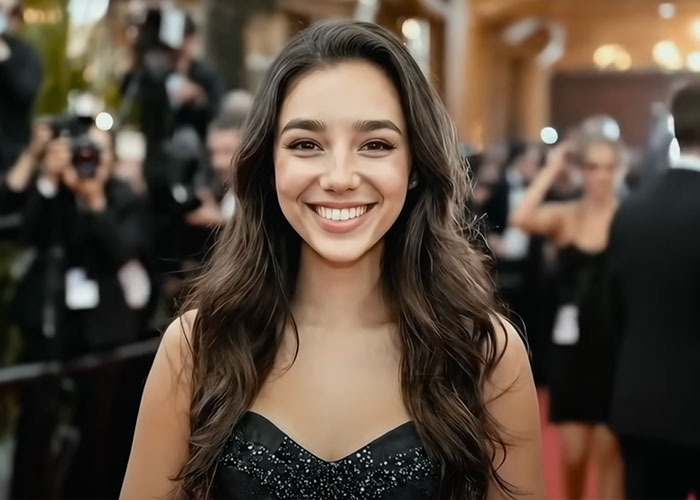
While Hollywood lined up to condemn Tilly Norwood, her creator Eline Van der Velden defended the experiment as art rather than a threat. On Instagram, she argued that Tilly is not a replacement for working actors.
“To those who have expressed anger over the creation of my AI character, Tilly Norwood, she is not a replacement for a human being, but a creative work, a piece of art,” she wrote.
“Like many forms of art before her, she sparks conversation, and that in itself shows the power of creativity.”
Van der Velden, herself an actress, explained how she sees AI simply as another way for creatives to imagine and build stories.
But while Norwood and her potential fame is striking fear into the hearts of Hollywood, the phenomenon is far from new in other areas of the world.
Countries like South Korea and Japan have long experimented with virtual artists
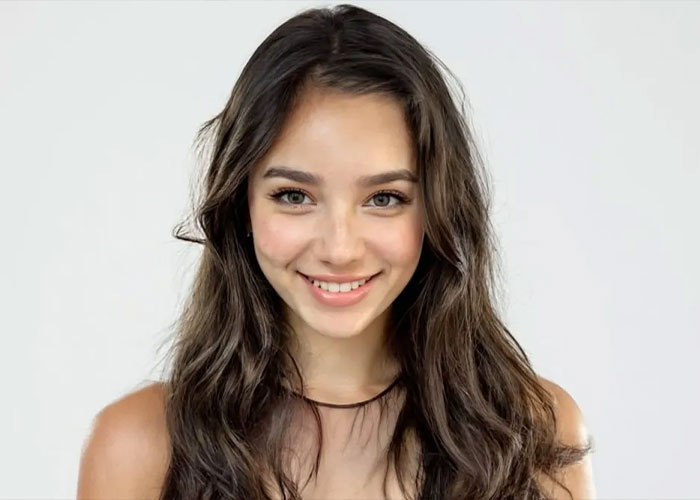
For instance, in South Korea, virtual K-pop bands have been testing the boundaries of AI technology for years.
One of the most notable examples is Eternity, a group created by the company Pulse9.
None of its 11 members exist in real life, yet on screen they sing, and dance with the precision expected of Korea’s most polished idol groups.
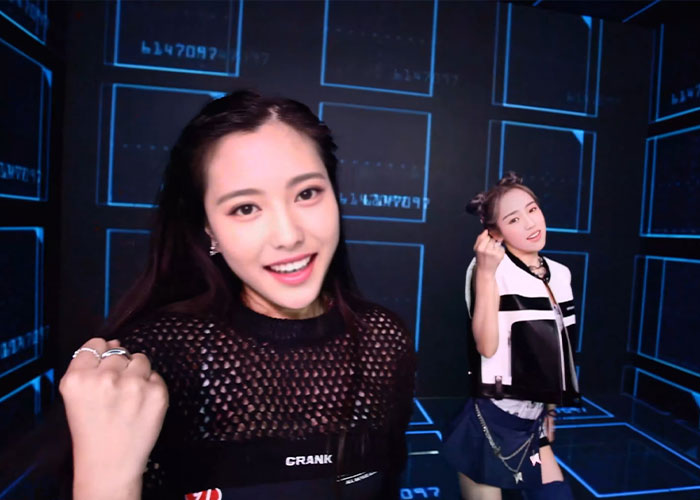
Among the group’s standout figures is Zae-in, a member designed to embody an impossible ideal. She can rap, sing, act, and even design fashion collections.
“She has characteristics that most human artists would be hard-stretched to pull off,” Pulse9’s CEO Park Ji-eun explained.
Much like Norwood, the Korean company built Zae-in using a mix of AI-generated vocals and motion-capture performances. At any given time, up to ten different people can “play” her, ensuring she can release new content without pause.
Industry experts explain that AI is already being integrated into the workflow of many artists, blurring the lines between real and enhanced
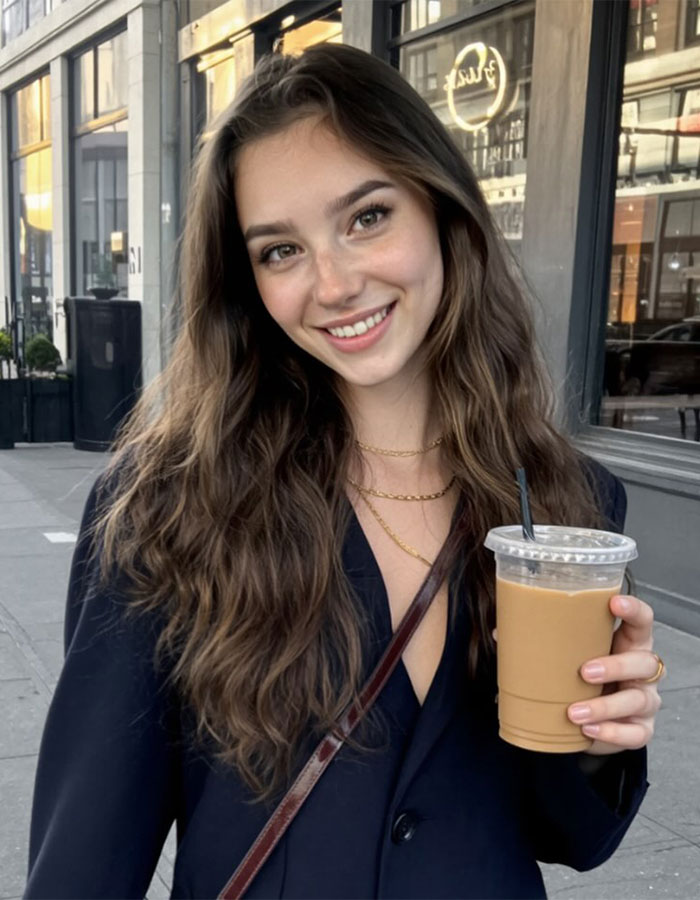
Beyond fully AI creations such as Norwood or Zae-in, a less noticeable trend has already started being implemented in the music industry.
Just like tools like auto-tune and super fast sound editing made music as a whole sound more artificial, AI software is being used to enhance the performance of flesh and blood artists, leaving their fans none the wiser.
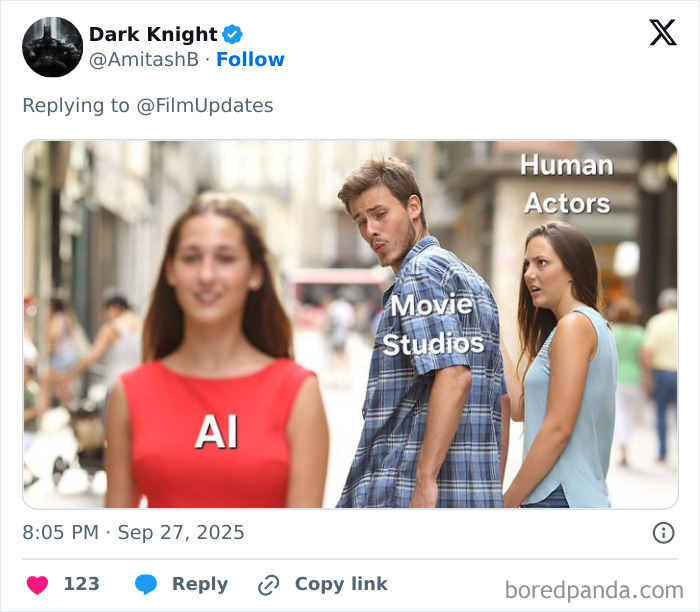
In South Korea, Hybe, the company behind boy band sensation BTS, has already experimented with AI-enhanced vocals, helping their artists not only sound better, but seamlessly release tracks in multiple languages.
According to Park, this is exactly where the industry is heading: seamless collaboration between AI and flesh and blood artists.
“The end of the industry as we know it,” a netizen wrote
